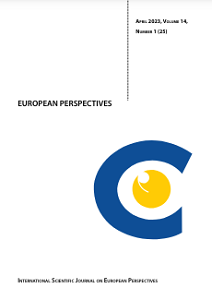
Ajša Hafizović-Hadžimešić - On The Side of Humanity
Review of: Ajša Hafizović-Hadžimešić: “On The Side of Humanity”, Association Pokret Majke enklava Srebrenica i Žepa, Sarajevo, 2021, 390 pages, ISBN 978-9926-8091-8-8
More...We kindly inform you that, as long as the subject affiliation of our 300.000+ articles is in progress, you might get unsufficient or no results on your third level or second level search. In this case, please broaden your search criteria.

Review of: Ajša Hafizović-Hadžimešić: “On The Side of Humanity”, Association Pokret Majke enklava Srebrenica i Žepa, Sarajevo, 2021, 390 pages, ISBN 978-9926-8091-8-8
More...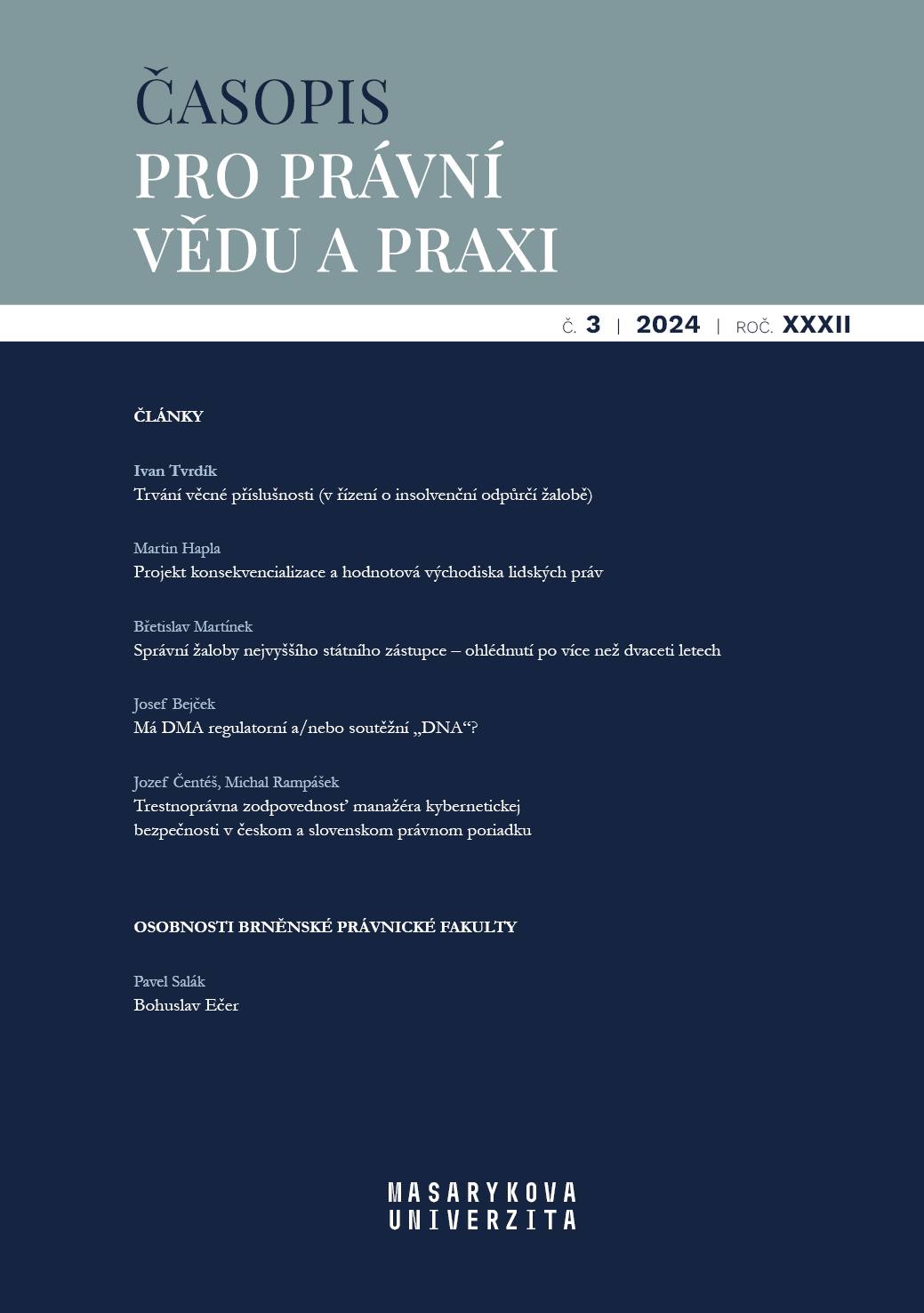
In the article, the author critically attacks the established practice of the Supreme Court, according to which a court with subject matter jurisdiction, whose jurisdiction was undoubtedly given at the time of the beginning of the proceeding, may become jurisdictionally incompetent in the course of the proceeding as a result of a mere change in the legal assessment of the case. The examples of German, Swiss and Austrian legal doctrine, regulation and practice show that the principle of the duration of jurisdiction, which applies in the Czech Republic on the basis of the second sentence of Article 11(1) of the Civil Procedure Code, prevents such a result. All the way to the end of the proceeding, only those circumstances which existed at the time of its initiation are decisive for the determination of subject matter (and local) jurisdiction. If the court has at the beginning of the proceeding, on the basis of the value or the legal nature of the matter in dispute, subject matter jurisdiction to hear and determine a particular case, its jurisdiction cannot be changed merely because the court’s legal assessment of the case has changed after the completion of the examination of the evidence. The jurisdiction of the court is based purely on the pleading and the pleaded facts or the substantive assessment of the pleaded facts (i. e. not on the established facts). The answer to the question which court has (subject matter) jurisdiction to hear and determine a case must be apparent from the outset of the proceeding and cannot, in principle, change during its course. This is mainly the result of the principle of procedural economy, the arguments connected with it and the procedural definition of the matter in dispute, or, to put it more simply, the principle of the duration of jurisdiction.
More...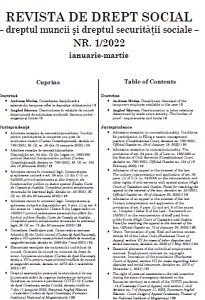
Curtea constată că, în circumstanțele cauzei, nici principiul nediscriminării și reglementarea cuprinsă în O.G. nr. 137/2000 și nici regula stabilirii salariului la nivelul funcțiilor similare prevăzută de art. 39 alin. (1) din Legea-cadru nr. 153/2017 nu justificau recunoașterea dreptului reclamantei de a beneficia de sporul de confidențialitate de 10 % pentru perioada în care nu a deținut autorizație de acces la informații clasificate, nivel „secret”. Faptul că reclamanta a obținut, după încetarea delegării de atribuții, autorizația de acces la informații clasificate secrete, contrar celor reținute de prima instanță, nu poate echivala cu o recunoaștere retroactivă a dreptului de a beneficia de sporul de confidențialitate, întrucât acordarea acestui drept salarial este condiționată și de existența unor atribuții ce presupun accesul la informații clasificate.
More...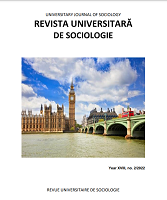
The connection between drug use and crime is studied and recognized by specialists in the field, but aspects of this relationship are even more worrying when we talk about juvenile drug users who have committed criminal acts and especially minors who don’t have criminal responsibility. The phenomenon of juvenile delinquency is not a new one and over time, it has taken different forms, depending on the particularities of each era, the socio-economic situation and the cultural model. However, the opening of Romania's borders after the events of 1989, also meant the opening to illicit drug consumption, a phenomenon that represented a novelty element for Romania and that is becoming more obvious in our society. The need to protect the delinquent drug user may seem, at the level of common sense, a paradox, but a juvenile drug user who has committed a criminal offense may become a future delinquent adult with serious drug addiction’s problems. However, precisely by protecting the minor who has used drugs and committed an illicit act and with early intervention, that child has a chance to become a responsible adult, with values and basic rules related to the society in which he lives. The difficult subject of minors who commit crimes but don’t have criminal culpability is covered in this article. The legal standards, methodological regulations and instructions related to the particular intervention to (re)integrate young drug users who committed a crime but did not have criminal responsibility are examined.
More...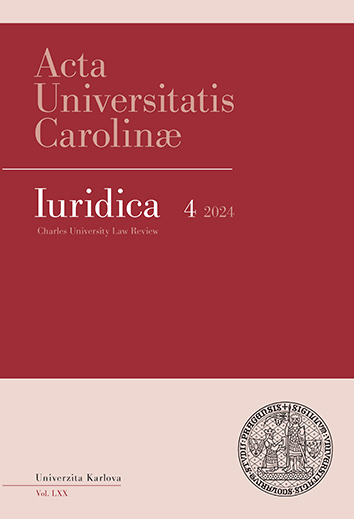
The journal article discusses the problems associated with crimes committed over a longer period of time, in particular in the context of the Supreme Court’s decision of 23 September 2020, file number 8 Tdo 866/2020, which dealt with whether the offence of stalking under section 354 of the Criminal Code was a continuation of an offence or an ongoing one. When discussing this decision in the Criminal Division of the Supreme Court, a debate was held as to whether it was correctly an ongoing or cumulative offence. The article deals with the arguments that have been made in this regard and concludes that it is an ongoing offence. In that context, it also addresses the issue of the so-called coherent actions, and on the basis of analysis of Supreme Court jurisprudence, that these are not another category of crimes characterised by a longer period of committing, but are merely an adjunct in theory and practice of differentiated categories continuation of offence, ongoing offence, and cumulative offence which serves only to refine and distinguish them correctly in specific cases under assessment.
More...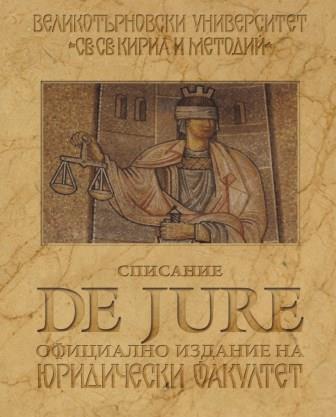
The article discusses the question of the methods of proof, as an important institute of the criminal procedure. On the basis of research about scientific studies and court judgments are discovered their main characteristics, as the only tool of the collection of evidence. On this ground, conclusions were drawn about the cognitive and documenting nature of the methods of proof, their general purpose, and legal nature. All this served as a reason for the presentation of a scientific definition and some recommendations.
More...
Review of: Júlia Derzsi - Delict şi pedeapsã: Justiþie penalã în oraSele sãseSti din Transilvania în secolul al XVI-lea (Crime and punishment: The functioning of criminal jurisdiction in the Transylvanian Saxon towns in the 16th century). Kolozsvár: Egyetemi Mðhely Kiadó; Bolyai Társaság, 2022.
More...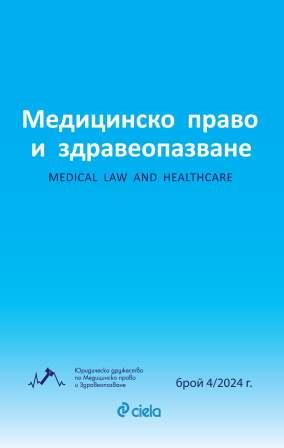
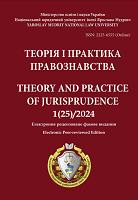
The relevance of the article is determined by dedicating the study to the place of сommercial сases among the categories of сases defined in Art. 1 of the Agreement between Ukraine and the Republic of Poland on legal assistance and legal relations in civil and criminal cases of May 24, 1993. The purpose of the work is to consider the possibility of applying contractual provisions to сommercial cases, given the fact that the latter are not defined as a type of "civil cases" as well as, for example, family or work сases. Certain aspects of Polish and Ukrainian legislation in the context of understanding and correlation of civil and economic cases are highlighted. The obtained results became possible thanks to the use of methods of scientific knowledge taking into account the peculiarities of their use in legal science. The preparation of the article became possible, and the conclusions were substantiated by using general scientific and legal methods: analysis and synthesis, deduction and induction; empirical and other methods. At the same time, it is difficult to find out exactly what goals the representatives of the authorities of Poland and Ukraine pursued in the context of not including economic сases in the 1993 Agreement. However, according to the preamble, the main purpose of concluding this agreement was to maintain friendly relations between the two states and deepen cooperation in the legal field, including in civil cases. Among Polish and Ukrainian representatives of the scientific community, there is no unanimous opinion regarding the place of economic affairs in the Agreement of 1993. In the Polish doctrine, one can find the opinion that the evaluation of statements in international treaties additionally requires taking into account their effectiveness, that is, interpreting the text so that it has a certain meaning and was useful In our opinion, taking into account the preamble and Art. 1.4 of the Agreement of 1993, which extends the provisions of the treaty to legal entities formed in accordance with the legislation of each participating state, the exclusion of economic affairs from the field of international regulation would be ineffective and too unfavorable for business entities from both countries. The obtained results, in addition to the above, also consist not only in the analysis of international treaties of Poland and Ukraine with other states, which have a similar subject of regulation to the Agreement of 1993 and the place of economic affairs in them, but also in the analysis of judicial practice of the application of this type of treaties.
More...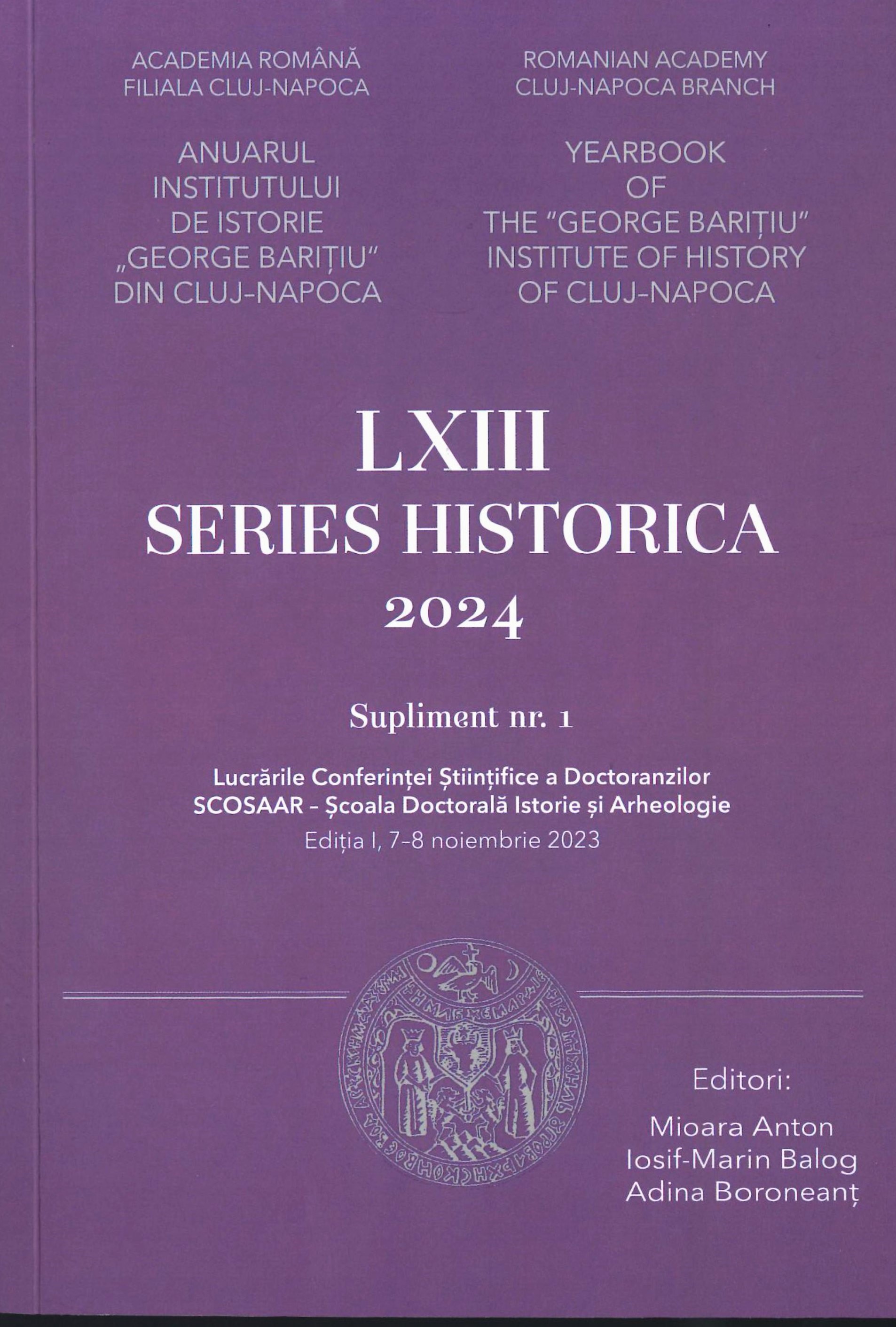
At the end of the 19th century the economy of Banat gained an ascending trajectory. In this favourable context, there were many financially powerful people willing to invest in the industrial field. Thus, new industrial units appeared in Timișoara but also in other cities, among them,„Kandia” vinegar and sugar factory. The foundations of the future factory took place on March 24th, 1890. The original owners of the factory were the brothers Látter Mihály and Mor, from Timișoara. In 1909, the factory was transformed into a joint-stock company. In 1917, the vinegar and sugar factory officially received the name „Kandia”. After becoming a joint-stock company, „Kandia” began to develop at a more sustained pace, the number of employees increased, the factory was modernized and the range of products expanded. The outbreak of the First World War slowed the pace of development. Amid the worsening situation caused by the prolongation of the its war, starting in 1917, „Kandia”, as a food factory, was involved in the war effort. On October 11th, 1918, the „Kandia” company was effectively engaged in war production. According to the procedures, the factory concluded a trade convention with the Austro-Hungarian army. In November 1918, the Austro- Hungarian Empire fell apart, but the former empire remained with a large debt to the „Kandia” company.This dispute was the subject of several lawsuits between the „Kandia” factory and the Hungarian state that spanned the entire interwar period.
More...
The article titled Sarajevski dnevnik on The Court Proceedings against Waqf Directorate in 1946 analyses the court proceeding against Dr. Hazim Muftić, director of Waqf directorate and his co-workers, who were charged with misuse of office and taking advantage of Muslim lessees of waqf property. The authors here present reports published in Sarajevski dnevnik with the aim to analyse the context and motivation of the Communist government in Yugoslavia after the Second World War in their tendency to marginalise religion and religious communities. The article stresses the use of communist propaganda and the orientalists’ terminology in constructing their case against Muftić and his co-workers presenting them as exploiters of the poor and collaborators with the fascist occupiers. The authors find the communist plan to crush religious institutions in the country as a possible real reason for these charges.
More...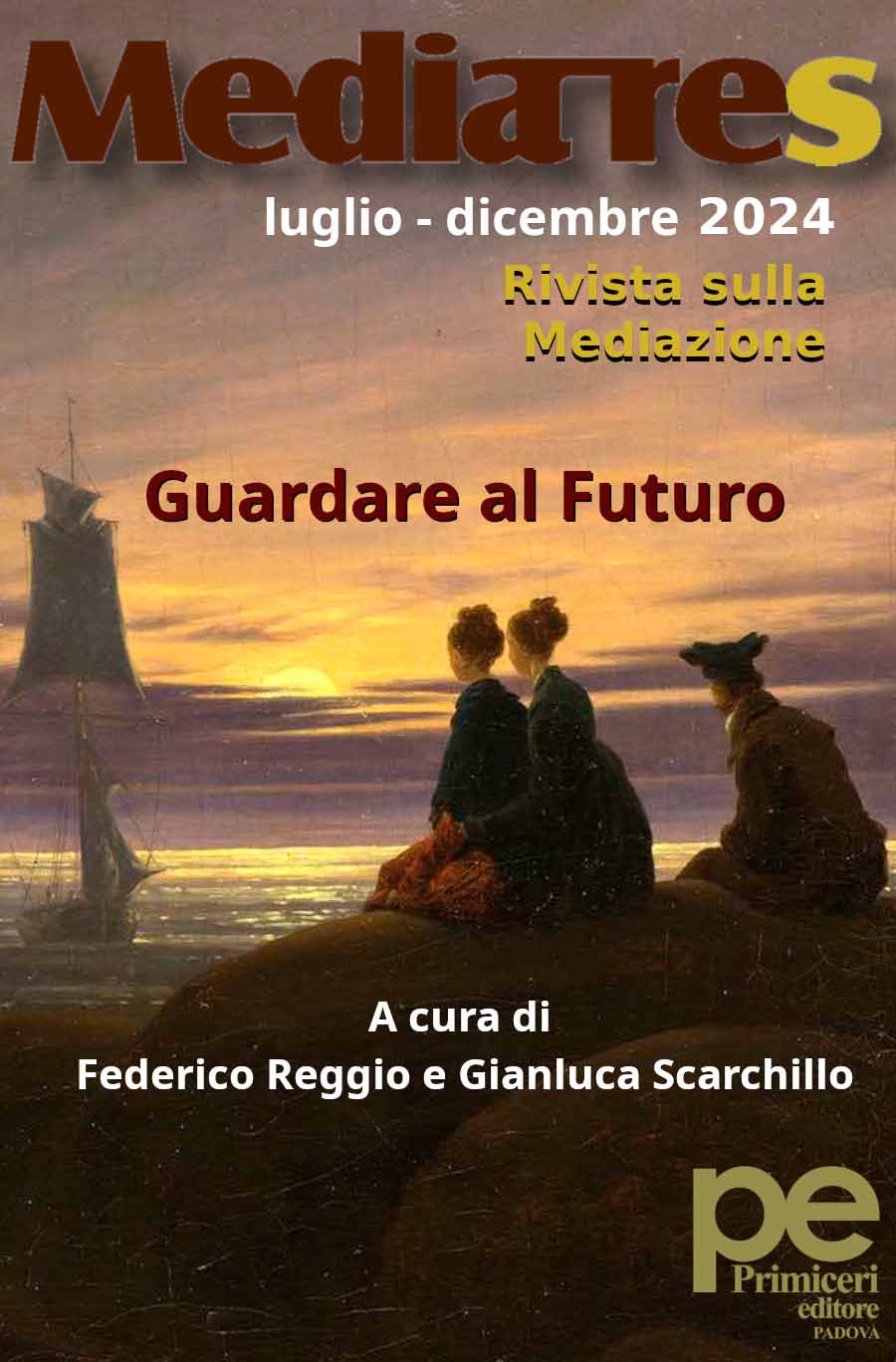
Review of: Class Action. Dalla comparazione giuridica alla formazione del giurista: un caleidoscopio per nuove prospettive, ed., Torino, Giappichelli, 2024, ISBN: 979-12-211-0709-8, pp. 1-272.
More...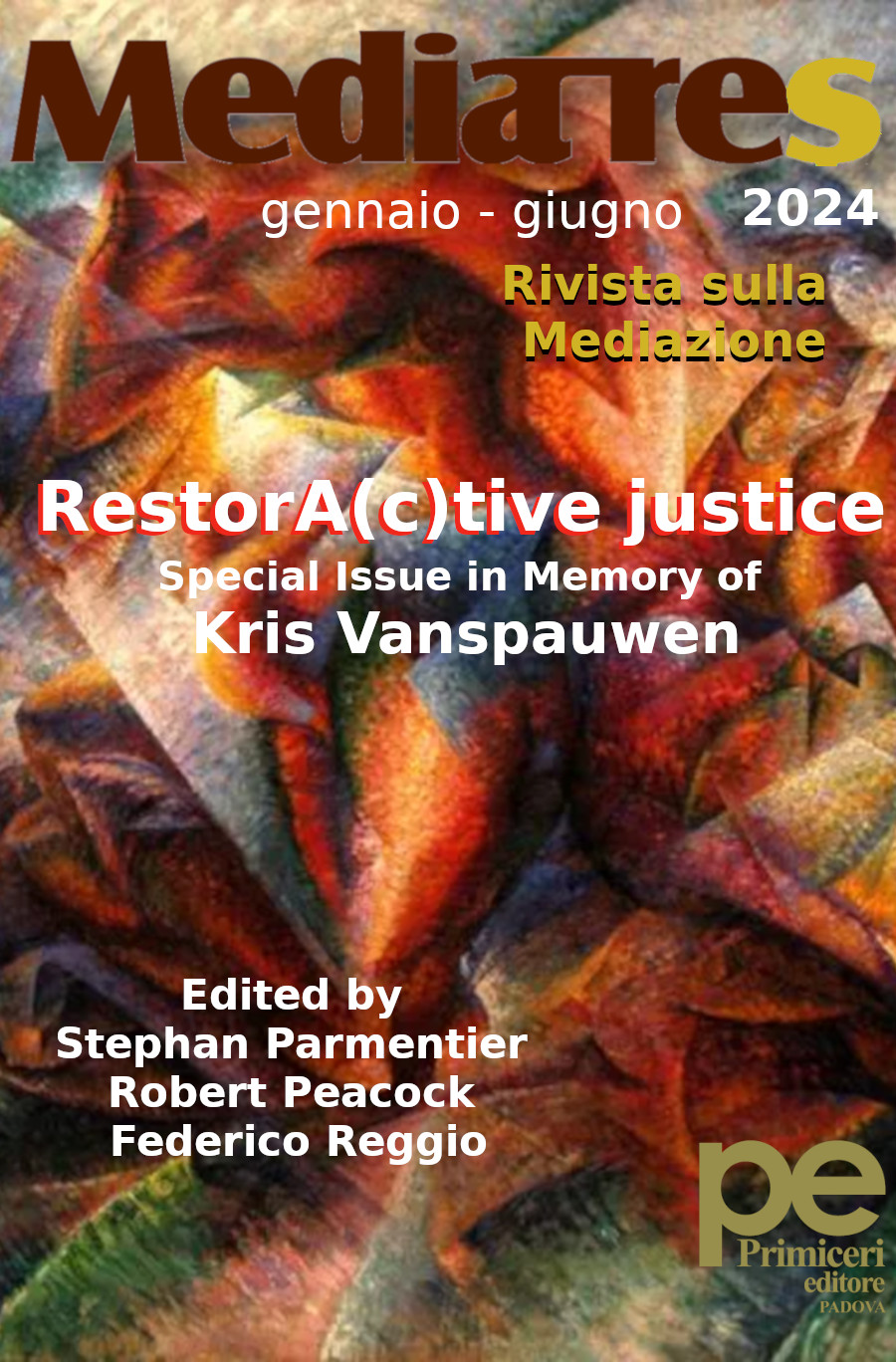
As is well-known, numerous studies have established connections, whether historical or conceptual, between contemporary forms of restorative justice and indigenous (as well as ancient and enduring) informal conflict resolution practices. These studies assert that restorative justice and indigenous systems share significant parallels, rooted in their emphasis on healing, community involvement, and the restoration of harm, rather than mere punishment of offenders. These parallels underscore the fundamental principles guiding both approaches. Specifically, both restorative justice and indigenous justice, in their various manifestations, prioritize dialogue and communication as indispensable tools for conflict management. However, this viewpoint has encountered criticism for its potential to misinterpret indigenous conflict resolution systems and misunderstand the complexities of post-colonial interactions. This essay does not claim universality but seeks to substantiate these criticisms through the analysis of a case study: sulha, a traditional method of conflict resolution in Middle Eastern cultures. More precisely, the aim of this essay is to highlight two critical differences between contemporary restorative justice and the sulha model: the nature of mediation (including the attitude of mediators and the social expectations burdening the mediation process; as well as the role of violent retaliation as a potential deterrent factor) and the concept of reconciliation. As this essay maintains, while restorative justice emphasizes individual accountability and interpersonal dialogue, the sulha model prioritizes group solidarity and ritualistic gestures. This disparity sheds light on the distinct social significance attached to mediation and reconciliation in their respective contexts. By exploring these differences, this essay illuminates two diverse approaches various cultures employ to address conflicts and foster relationship restoration.
More...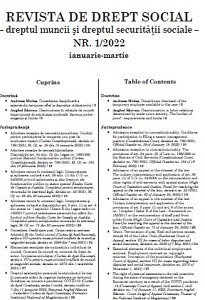
Înalta curte de casație și justiție, Completul pentru dezlegarea unor chestiuni de drept, decizia nr. 70/2024, M. Of. nr. 1.275 din 18 decembrie 2024.
More...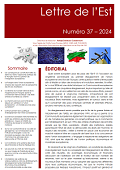
The constitutional revision adopted in Bulgaria at the end of 2023 took place in a context of successive institutional crises that the country has been experiencing for several years due to the impossibility of forming a government following the legislative elections. Such a situation necessarily led to a strengthening of the role of the President of the Republic, which the constituent wished to limit, by establishing a list of candidates who could be appointed to the post of interim Prime Minister. This new method of appointment raises many questions regarding institutional order, which are analyzed in this study through the prism of the decision pronounced by the Bulgarian Constitutional Court on 26 July 2024.
More...
The article includes an analysis and assessment of the legal framework, as well as an overview of the amendments and supplements in the Protection from Domestic Violence Act, legislative gaps and weaknesses and the need for amendments, policies and service provision, and good normative and organizational practices. The analysis and recommendations have been developed after an in-depth analysis of the situation in the Republic of Bulgaria and contain statistical data related to the phenomenon of domestic violence. The analysis is based on data which include the number of calls to the single European number 112, the protection orders received for control in the regional police stations and the pre-trial proceedings initiated for crimes committed in the conditions of domestic violence.
More...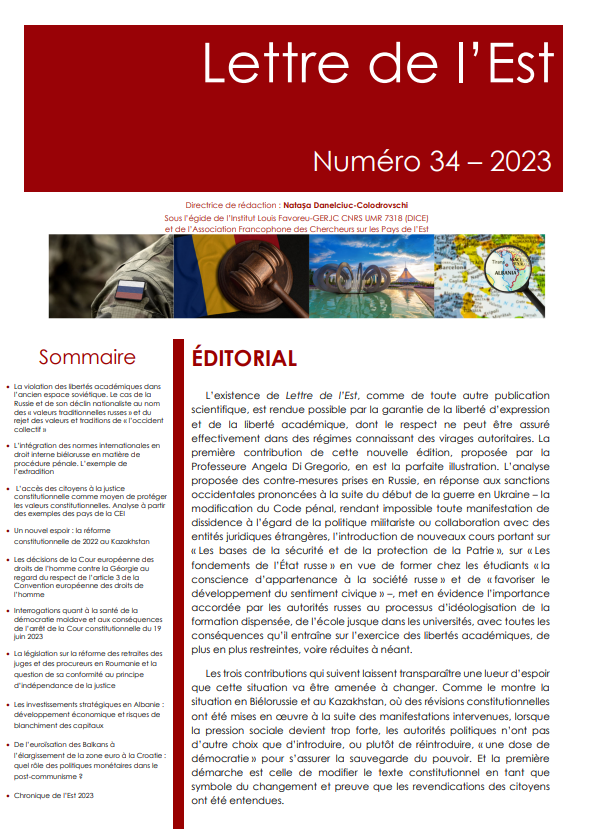
The aim of this article is to analyze the judgment of 19 June 2023 declaring the political party “Sor” unconstitutional by the Moldovan Constitutional Court. The judgment raises many questions regarding its compliance with the case law of the European Court of Human Rights in this area and the requirements it has set for compliance with the principle of proportionality and the justification of such a radical and dangerous measure for democracy.
More...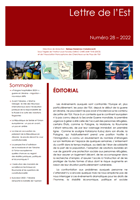
La création de l’État géorgien remonte au IIIe siècle avant Jésus-Christ. À partir du XVIIIe siècle, la Russie tsariste assume le rôle de puissance « protectrice » et, en 1801, annexe la Géorgie. Après la Première Guerre mondiale, l’État démocratique de Géorgie connaît trois ans d’indépendance (1921-1924) avant d’être conquise par « l’armée rouge » et incorporée, d’abord dans la République soviétique socialiste fédérale de Transcaucasie et, ensuite, dans l’Union soviétique. Lorsque l’Union soviétique commence à se désintégrer, la Géorgie engage son chemin vers l’indépendance. L’analyse des rapports de l’Assemblée parlementaire du Conseil de l’Europe5 permet de conclure qu’à partir de 2003, la Géorgie a pratiquement commencé l’exécution des obligations prises lors de son adhésion au Conseil de l’Europe en 1999.
More...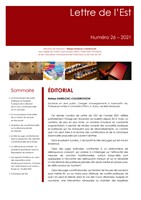
financing of political parties; Bulgaria; Constitutional Court ruling; April 27, 2021; political parties; legal regulation; transparency; sources of funding; public funds; political party; funding control Les questions liées au financement des partis politiques et aux ressources matérielles dont ils peuvent disposer ne cessent de susciter l’intérêt du public bulgare. Pendant longtemps, la subvention accordée par l’État a constitué l’une des principales sources de financement des partis politiques. En vertu de l’article 25 de la loi relative aux partis politiques, seuls les partis politiques ayant recueilli au moins 1 % ou les coalitions ayant recueilli au moins 4 % des suffrages exprimés dans le pays et à l’étranger lors des dernières élections parlementaires peuvent en bénéficier. Le montant annuel de la subvention publique de chaque parti politique ou coalition est déterminé en multipliant le nombre de votes obtenus par le parti ou la coalition par le montant de la subvention publique pour un vote effectif reçu. Ce montant est déterminé chaque année par la loi de finances de la République de Bulgarie. La subvention annuelle d’État est versée aux partis bénéficiaires en quatre fois (article 26 de la loi relative aux partis politiques).
More...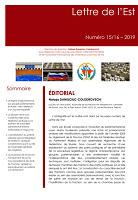
Dans son arrêt du 6 décembre 2018, la Cour constitutionnelle russe a été appelée à résoudre un problème assez épineux, à savoir la constitutionnalité de l’accord sur la fixation de la frontière administrative finalement conclu (après 26 ans) entre les Républiques d’Ingouchie et de Tchétchénie. À l’époque soviétique (à partir de 1934), la Tchétchénie et l’Ingouchie faisaient partie d’une seule République socialiste soviétique autonome « Tchétchène-Ingouche ». Malgré leur séparation, avec la naissance de deux Républiques distinctes d’Ingouchie et de Tchétchénie, qui a eu lieu en 1992, la frontière administrative n’a jamais été définie avant l’accord du 26 septembre 2018, rapidement ratifié par les parlements des deux Républiques. Cet accord a provoqué de nombreuses tensions et manifestations en Ingouchie, dont la population a estimé qu’il n’était pas avantageux pour la petite République du Caucase. Or, il ne s’agissait pas d’un simple échange de terres mais d’un transfert en Tchétchénie d’endroits importants relevant de la tradition des Ingouches où sont notamment enterrés leurs ancêtres.
More...